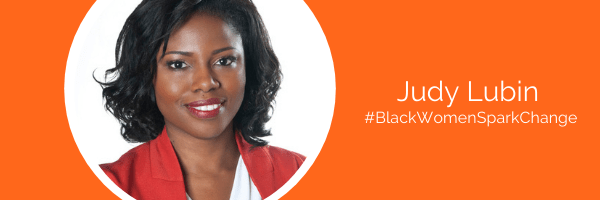
As founder and president of the Center for Urban and Racial Equity (CURE), Dr. Lubin is transforming how organizations think about equity
“I’ve always felt called towards racial equity and antiracism work,” says Judy Lubin, PhD, MPH, a sociologist, policy analyst, racial justice advocate and founder and president of the Center for Urban and Racial Equity (CURE). In the early days of the coronavirus pandemic, Dr. Lubin was one of several Black public health experts sounding the alarm on the disparate impact COVID-19 was likely to have on Black communities.
“My early life experiences made me very keen to racial differences.” Dr. Lubin’s parents came to Miami from Haiti and Dr. Lubin says she was frequently exposed to anti-Black narratives and anti-immigrant sentiment, especially as a young child. “During my undergraduate studies I started learning about how structural inequities play out in Black communities and took a special interest in health inequities facing Black women. Seeing the numbers surrounding Black women and breast cancer treatment, support services and survival rates, in particular, was shocking.”
Black women, Dr. Lubin explains, experience breast cancer at a much lower rate than other women — but they have a 31% mortality rate, 42% higher than the comparable rate for white women.
“Across many health issues including COVID-19, the racial differences in health outcomes go beyond unequal treatment in clinical settings and access to care, but are linked to the effects of structural racism that increase the likelihood of Black people being exposed to housing, neighborhoods and work conditions that place us at greater risk of ill health,” Dr. Lubin says. “In America, the things that produce good health are too often determined by race. Learning this fact years ago, early in my college years, started me on a path focused on public health and racial equity.”
Breaking down the walls preventing health equity
After graduating, Dr. Lubin pursued her Masters in Public Health (MPH) at Emory University before diving into a decade-long career that included leadership roles at the Black Women’s Health Imperative and consulting with the U.S. Department of Health and Human Services Office on Women’s Health, under which she launched the award-winning Heart and Style heart health initiative for Black women. She also served as a Congressional Black Caucus Foundation Public Health Fellow and wrote The Heart of Living Well, a health and wellness guide for women
“Through the course of this work I realized that, at the root of health disparities is racism,” Dr. Lubin says. “It’s racism and the intersections of other axes of oppression — poverty, for example. I wanted to have more of a language around these root causes, and to be able to develop strategies to really impact change.”
With this critical end goal in mind, Dr. Lubin went on to pursue a PhD in sociology at Howard University. Her studies, which included a focus on urban conditions and health inequities, Dr. Lubin says, sharpened her perspective on the change and transformation that needs to happen across institutions and communities “so that Black people have a fair and just chance to be healthy.”
Transforming society one organization at a time
Now, with an eye on continuing to drive greater racial equity in communities, Dr. Lubin launched the Center for Urban and Racial Equity (CURE) and, today, serves as president. CURE partners with people and organizations to advance racial equity through policy, systems, institutional, community and societal change.
Together with her team, Dr. Lubin helps drive organizations to become more equity centric. Through racial equity assessments, training, collaborations and action planning, CURE partners learn to apply racial equity and anti-racism frameworks and approaches to build out new systems and practices that promote better outcomes for communities of color
“We’re building the capacity of organizations and institutions that control resources and impact the daily lives of Black and brown people to act in ways that are aligned with equity and justice,” Dr. Lubin says. “We’re helping partners to not only be more conscious of how they can perpetuate racism and cause harm to marginalized people and communities, but how they can transform their institutions to proactively promote health and economic justice and build power with the people they serve.”
With that transformation, she believes, can come greater equity in health and beyond..
“If we can support organizations in this transformation, and help them align resources equitably so they’re in partnership with our communities — that means listening to the priorities of those most impacted by health and other inequities, we can build an America that gets closer to the promise of freedom and justice for all.”
